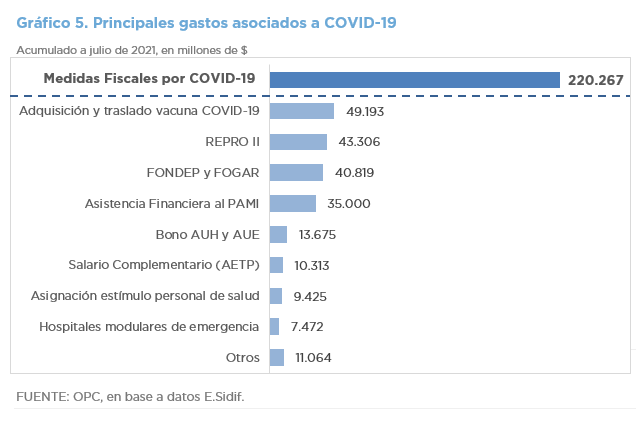Because of lower healthcare expenses, the drop in pension benefits, the decrease in debt interest payments and an expansion of revenues of 7.1% year-on-year (YoY) during July, the National Government recorded a primary, fiscal, and revenue deficits decrease in real terms as compared to the same month of the previous year.
The primary deficit amounted to ARS131.32 billion, which implies a reduction of 32.1% YoY compared to July 2020.
- Revenues totaled ARS640.2 billion. The currency depreciation and the prices of the soybean complex stimulated the collection of Export Duties.
- Primary expenditures amounted to ARS771.52 billion in July and fell 2.5% YoY, mainly due to the drop in pensions and current transfers to provinces, but also because expenditures in social programs for the health emergency were lower than those made in July last year.
- Pensions fell 5.5% year-on-year. The mobility of the general pension system’s benefits in the last four increases did not manage to compensate for inflation: 36.8% vs. 51.8%.
- On the other hand, energy subsidies increased by 59.2%, largely to compensate for the increase in the wholesale price of electricity.
- The Food Policies and Potenciar Trabajo programs accounted for 58.7% of the funds allocated to social programs.
- The initial Budget for the year increased by ARS293.64 billion as of July 31, with priority being given to social programs, the procurement and distribution of COVID-19 vaccines (ARS76.43 billion for the purchase and transport), and transfers to IEASA (Integración Energética Argentina S.A.).

